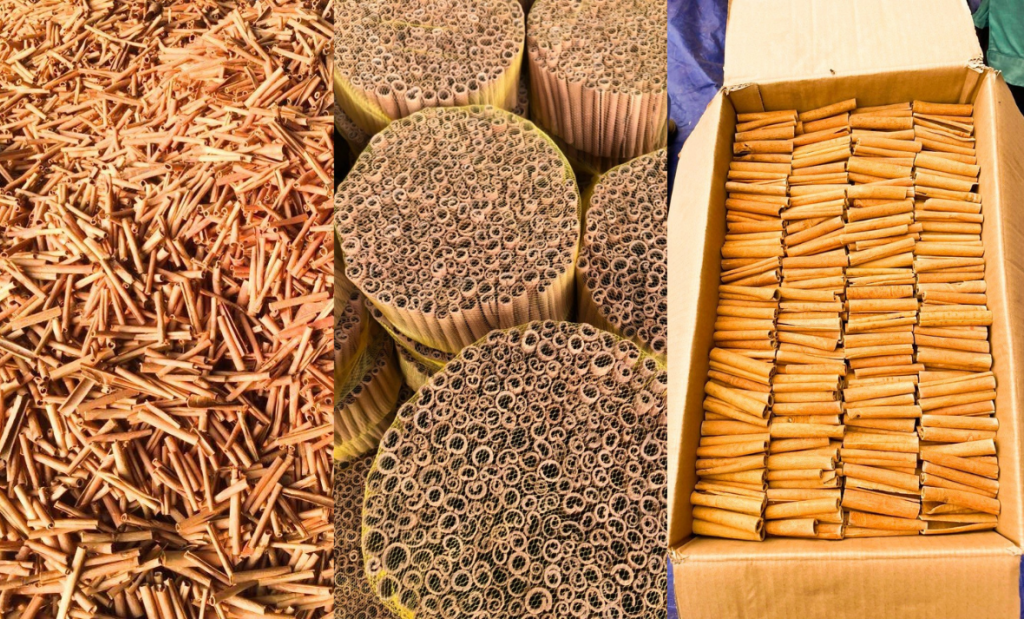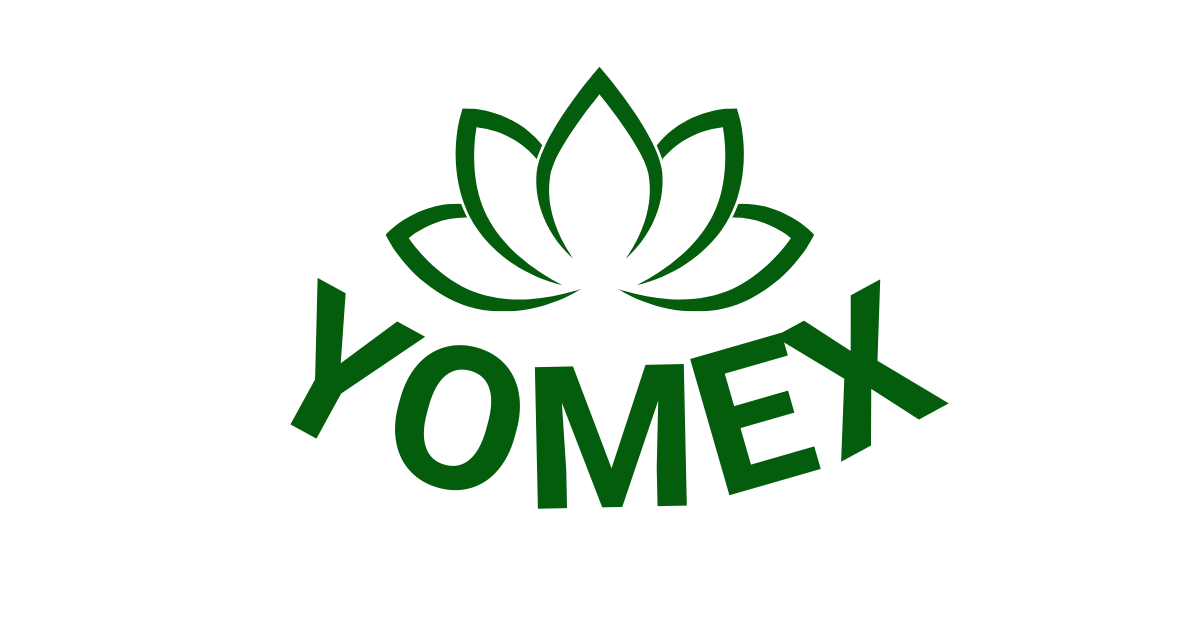Cinnamon is not just a spice, it’s a natural remedy with a familiar and aromatic presence in our lives. Have you explored the numerous beneficial effects of cinnamon on human health? Let’s delve into the details in this article.
1. Description of Cinnamon Plant Features
Cinnamon is a tree with a woody stem, reaching heights of approximately 10-20 meters. Its leaves grow alternately, with short, easily breakable stems, slightly pointed and blunt tips. There are three curved veins on the upper side of the shiny, dark green leaves. Cinnamon flowers typically cluster, appearing white and blooming between June and August. The egg-shaped, smooth and shiny brown fruits emerge from October to March of the following year.
2. Essential Nutritional Components in Cinnamon
According to the U.S. Department of Agriculture, one teaspoon of ground cinnamon (2.6g) contains the following main components: 2.1g carbohydrates, 6.42 calories, 26.1 milligrams of calcium, 0.21mg of iron, 1.66mg of phosphorus, 1.56mg of magnesium, 11.2mg of potassium, and 0.39 micrograms of vitamin A. Additionally, cinnamon contains vitamins B and K, along with antioxidants that reduce oxidative stress, prevent cancer, type 2 diabetes, and other health issues.
Cinnamon leaves contain two types of essential oils: trans-cinnamaldehyde and cinnamaldehyde (Cin), providing the characteristic aroma. These oils, especially when derived from leaves with high Cin content, offer health benefits.
Cinnamon bark contains catechin (common in green tea leaves) and procyanidins (common in berries), both known for their antioxidant properties.
3. Health Benefits of Cinnamon
Cinnamon, classified as a herb with sweet-bitter taste, pleasant aroma, and warm nature, brings several health benefits, including:
3.1. Enhanced Metabolism:
Cinnamon contains Cinnamaldehyde, which supports a faster metabolism. It helps burn excess calories and fat efficiently, making it beneficial for weight management. Moreover, cinnamon induces a prolonged feeling of fullness, reducing overall food intake.
3.2. Blood Sugar Regulation:
Cinnamon not only stabilizes blood sugar levels but also lowers cholesterol, blood pressure, and prevents complications related to diabetes. It assists in preventing blood sugar spikes after meals, aiding individuals with type 2 diabetes and pre-diabetes.
According to the National Center for Complementary and Integrative Health (NCCIH), cinnamon does not have a significant effect on reducing glucose or glycosylated hemoglobin A1c; it is mainly a measure for long-term blood sugar control.
3.3. Skincare:
Cinnamon-based face masks are sought after for preventing acne and red spots. Ceylon cinnamon, in particular, exhibits antibacterial properties, addressing the root causes of acne. However, excessive use can potentially irritate and damage the skin.
Recipe for a blemish and blackhead-reducing mask: Mix 3 tablespoons of honey with 1 tablespoon of cinnamon, apply to the affected area, and rinse with water. Cinnamon also promotes collagen production, contributing to youthful-looking skin.
3.4. Inhibition of Tumor Growth:
Animal and cell studies have shown that cinnamon can slow down the growth of tumors. Ongoing research is exploring its potential in cancer treatment and prevention.
3.5. Improved Digestive Health:
Cinnamon aids in improving gut health, reducing the risk of colorectal cancer, a leading cause of mortality. Cinnamaldehyde in cinnamon spice helps prevent the colon’s exposure to free radicals, mitigating the risk of dangerous colorectal cancer.
3.6. Respiratory Infection Prevention:
Cinnamon’s antibacterial properties are effective against bacteria and viruses, reducing the risk of respiratory infections like the common cold or flu. Cinnamaldehyde in cinnamon also alleviates lung cell irritation caused by smoking, contributing to respiratory health.
3.7. Joint Inflammation Control:
The compounds Cinnamomum cassia, known for their anti-inflammatory properties, are widely used in treating inflammatory joint diseases. Cinnamon’s anti-inflammatory and joint-protecting characteristics result from the presence of cinnamic aldehyde, cinnamic acid, and coumarin.
3.8. Support for Nervous System Degeneration:
Cinnamon has positive effects on the nervous system, promoting the formation of new nerve cells in the brain and sustaining the existing ones. Cin in cinnamon can transform into sodium benzoate (NaB), crucial for nerve function. This is particularly beneficial for individuals with Alzheimer’s or memory loss.
3.9. Blood Circulation Support in the Uterus:
Cinnamon improves blood circulation in the uterus, promoting tissue regeneration. This assists in reducing blood supply during the menstrual cycle, maintaining reproductive health and supporting the development of a healthy fetus.
Additionally, cinnamon helps stabilize blood flow to the uterus during pregnancy, ensuring proper blood supply through the umbilical cord for the healthy development of the baby.
3.10. Cardiovascular System Protection:
Cinnamaldehyde and cinnamic acid in cinnamon’s nutritional composition contribute to cardiovascular protection. High cholesterol levels are a primary cause of arterial plaque, leading to heart-related diseases. Therefore, using cinnamon, along with honey, helps reduce the risk of heart diseases by regulating cholesterol levels.
Honey can decrease LDL (bad) cholesterol by 6%, neutral fat by 11%, and increase HDL (good) cholesterol. Cinnamon also plays a role in reducing overall cholesterol levels.
4. Potential Side Effects of Cinnamon on Health
Despite being a beneficial herb, exceeding the recommended dosage of cinnamon may have side effects, such as:
- Increased risk of DNA damage.
- Liver damage and enzyme impairment.
- Mouth ulcers, accompanied by itching or irritation.
- Throat irritation or allergies in sensitive individuals.
- Complications during pregnancy.
- Sudden rise in body temperature due to cinnamon’s warm nature.
Cinnamon is a traditional spice and herbal remedy used for many years. However, it is advisable to consult a nutrition expert to determine the appropriate dosage for optimal health protection.
5. Where’d you buy Cinnamon?
Yomex specializes in the wholesale supply of Cinnamon to restaurants, other juice shops, supermarkets, grocery stores and importers. Delivery on site, quality assurance.
Yomex supplies wholesale price Cinnamon in big quantities as customer requirement, at best price, good quality. Cinnamon on Yomex is always available 24 hours a day when the customer has ordered it right away.

Are you looking for a reputable place that exports Cinnamon? Come to Yomex now to import quality Cinnamon from Vietnam! Yomex currently sells quality Cinnamon at competitive prices in Vietnam. Products at Yomex are committed to being absolutely safe for health.
With many years of experience in the field of producing and trading spices and herbals and regional specialties, Cinnamon sold at Yomex are always of guaranteed quality and origin so you can use them with peace of mind. Contact us now to receive the best advice and support.
Email: contact@yomex.vn
Phone: +84 85 86 87 697 (Whatsapp/Wechat/Line)

